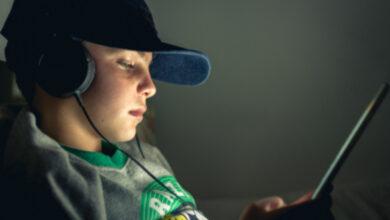Children returned from the occupation visited Rome as part of the “Children at Home” project

Children who witnessed war, lost their homes or were deported need recovery and rest. Among those who managed to return from the temporarily occupied territories or from the territory of Russia, there are many children who are still in a state of tension, social isolation or psychological exhaustion. For them, any change of environment is not a rest, but a way to restore a basic sense of normality. And it was for this purpose that in July 2025, 38 Ukrainian children went to Italy for two weeks as part of the Children at Home project.
The trip was organized The United Center for the Coordination of the Search and Release of Prisoners and Illegally Detained Persons under the SBU within the framework of the Bring Kids Back UA initiative. The Embassy of Ukraine in Italy, the Holy See and the charitable organization GURU Fund became partners. Children who returned from forced deportation, survived the occupation, or have a loss or injury in their family went on the trip. Most of them are from de-occupied or front-line regions, where full schooling has not yet been restored, and ordinary household items are still limited.
As Andriy Pasternak, head of the Joint Center at the SBU, explained, the project is aimed at giving these children a temporary environment where they could communicate with their peers, feel the support of adults and change the usual situation of constant stress. The group also included children of fallen servicemen, orphans and those whose relatives are in the Armed Forces.
The children stayed in the Italian town of Postiglione for two weeks. During this time, they had the opportunity to attend group classes, take part in walks, relax by the sea, get acquainted with cultural objects and communicate with their peers.
The program also included a trip to Rome. In the capital, the children visited historical places and had a meeting with Pope Leo XIV. All activities were conducted under the supervision of teachers, psychologists and accompanying persons.
Within the framework of the organized activities, children were encouraged to calmly, gradually integrate into the activity, without pressure, taking into account the fact that each child had different previous experiences.
Among the participants was a guy named Andrii, whose father serves in the Armed Forces. He shared his impressions of sea walks and excursions. In a conversation with journalists, he mentioned a trip to the cave, which made a special impression on him.
Another participant, Sofia, spent a year in occupied Kherson before the trip. Her mother could not leave the city after the destruction of the Antonivsky bridge, so the girl was looked after by her grandparents. Sofia recalls that during the occupation neither schools nor medical institutions were open. According to her, participating in the trip allowed her to communicate with her peers, change the environment, see new places and feel that life outside the shelling zone looks different.
The organizers of the project state that such trips are not intended to replace systemic assistance or rehabilitation programs, but can be one of the stages of support. Next trips are now being prepared for other categories of children who have similar experiences — as a temporary measure of psychological stabilization and social contact.
It is important to note that the trip to Italy is not considered as the end of the child’s reintegration process. This is just one of the tools that can contribute to the further work of psychologists, social workers and educators.





